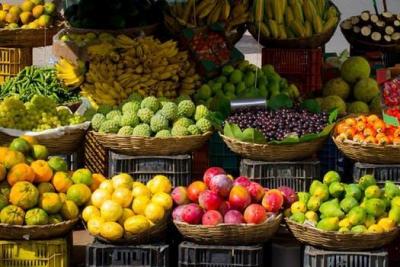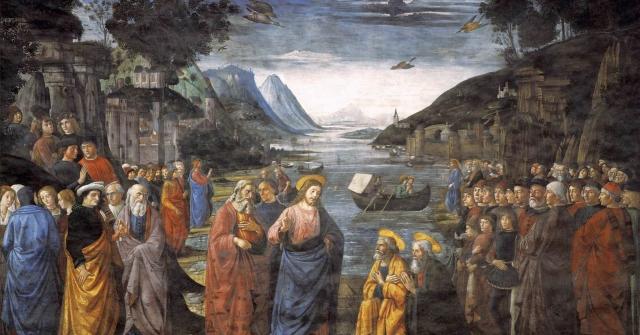
The DNA of Multiplication Fruitful practices of a Discipleship Making Movement - A Case Study
A natural disaster launched me into this ministry. 250,000 people fled their homes. My previous mentor asked me to join their disaster response team. He pictured me as a church planter in a wide arena, and offered to coach me in bearing much fruit.

Apostolic Agent: Coaching
Fruitful Practice - Apostolic Agent: Coaching. Always look for “apostolic agents” who can open new fields and mobilize volunteers in wide areas. Coaching by listening and interacting helps them develop.
Soon, many villagers returned to their mountain homes. I volunteered to meet disaster victims in their mountain villages. Because I was from another ethnic group, and spoke little of the local dialect, the victims picked a young man, “Samuel”, as my translator.
Fruit Focus
Fruitful Practice - Fruit Focus: We do Fruitful Practice research “Focus on fruit, not activities”.
God had shaken these communities. Many houses collapsed, fields were damaged, and crops destroyed. These poor farmers were laid low and looked beyond their disaster-impoverished community for needed resources. Their needs were very great. I worked with community leaders, to draw creative wisdom and effort from the disaster victims themselves.
Groups, not Individuals, Group Formation: Divine Shaking
Fruitful Practice - Groups, not Individuals, Group Formation: Divine Shaking. One of the ways God uses to form spiritual seeker groups is to shake an area.
Samuel went with me everywhere and heard all the practical and spiritual dialogue that I shared. He became the first to believe, the first to birth a believer group.
An older local community leader, “Peter”, offered me and my friend housing on my first night in the village. But that night he hexed us with black magic to establish his dominance over us. After battling demonic powers that night through prayer, my coworker and I repelled the hex. Seeing he was unsuccessful, Peter asked us the next morning, “Why does my power not work? It just comes back and attacks me. What power do you have that is stronger than mine?” I answered, “The power of Isa (Jesus) dispels dark powers and brings healing.” After we shared Bible Studies about the power of Jesus over demons, Peter became our second believer.
Groups not Individuals: Key People
Fruitful Practice - Groups not Individuals: Key People. Samuel, Peter, Daren, and Michael were keys who formed believer groups. Some were community organizers, some legitimized or protected us, and some connected us with rich social networks.
Groups, not Individuals, Group Formation: Miracles
Fruitful Practice - Groups, not Individuals, Group Formation: Miracles. God’s power over dark powers is a miracle God uses to open new fields and start new groups.
Because Peter owned the only satellite TV in the village, many people came to his home each night. One night he turned off the TV and told everyone that I had an important message to tell them! Without warning, I was on! This began a series of spiritual dialogues that started a second believer group in generation 1, led by Peter.
Groups, not Individuals: Transformation Dialogue
Fruitful Practice - Groups, not Individuals: Transformation Dialogue. Don’t focus spiritual conversations on individuals, but bring spiritual dialogue into natural groupings. Adjust dialogue to the group. This seems riskier for evangelists but is less risky for locals. Natural groupings provide social support for seekers.
“Daren” is an influential man in the community, who became the third believer in that community. He publicly called me his adopted son, so my social position strengthened. With the support of two community leaders, Peter and Daren, we had little opposition. In nine months, a dozen people had believed and were meeting in three groups. I began transferring leadership of groups to local leaders. The first generation of believers were led by Samuel and Peter. The second-generation group leader was Daren.
Peter shared about his village’s experience with his younger brother, Michael, an agricultural consultant who was helping with soil restoration after the eruption. Michael’s social network was wide, for he served several mountain villages. He had skills badly needed by those villages. One day, Michael asked me why I, as a non-xxxx person, came to help them. I told him the story of the Good Samaritan and that I was obeying Nabi Isa, to love needy people in his name. Michael gathered ten of his family members, and asked me to share with them. Many believed and formed a group.
Local Leaders
Fruitful Practice - Local Leaders. We encourage local leaders to facilitate the small groups they form. We spot leaders when they have followers, then train skills.
Because of the influence of Samuel, Peter, Daren, and Michael, the believer groups increased to seven, plus some mini-groups, in a year and a half. The believers had grown to 32 in first and second-generation believer groups, in two villages. Then they birthed our first third-generation group.
Generation 3, not Generation 1
Fruitful Practice - Generation 3, not Generation 1. A “Generation 2” group is birthed by a “Generation 1” group. From the beginning, the focus must be on Generation 3, our spiritual grandchildren, on helping our disciples bear fruit.
Groups starting in other villages began with Michael whose groups birthed more groups. Michael was attracted to me as a “near culture apostolic agent” and began to develop as a “local apostolic agent.”
Apostolic Agents: Locals
Fruitful Practice - Apostolic Agents: Locals. Some people naturally spread seed widely. When believers within a movement move because of work, they birth believer groups.
A major breakthrough happened in a third village on Idhul Adha, the commemoration of Abraham’s sacrifice. While I was helping 27 local men distribute meat to the poor, one man asked me what I understood about sacrifice, and I replied, “I need a full hour to answer this question. I will tell you all that the former prophets teach us about sacrifice. I will stay today until midnight and will come to any of your houses, if you invite me and your friends and family.”
Groups, not Individuals Transformation Dialogue
Fruitful Practice - Groups, not Individuals Transformation Dialogue. An annual commemoration provides occasion for the “Sacrifice Theme” dialogue. This dialogue uses goats as an object lesson, and links together sacrifice passages from Genesis through the Gospels.
That day I told the gospel story through the theme of sacrifice at eight houses, with highlights from Adam to Christ. In each house, from five to eight people gathered. As I shared from house to house, I became bolder in my witness. Family-friendship groupings were discussing the Scriptures together. In one house, the people prepared a meal for me. Then I remembered from Luke 10 that if a family hosts us and blesses us, it shows their openness to the gospel. They endorse discussion about the gospel in their village. In my prayer with this family, I prayed that God would show them the straight and true path, and that God would reveal Himself through dreams, through His Word, and through miracles. As we parted, the homeowner said, “When I come to know Isa Al Masih as the straight and true path, I will tell of him to my entire community.” My hair stood on end.
Groups, not Individuals
Fruitful Practice - Groups, not Individuals. Small groups multiplying multi-generationally reproduce at low cost and adapt to local socio-religious context. These start from natural groupings, then are infused with gospel dialogue.
I don’t know how many people came to faith that day, but five men who were new believers went with me from house to house and heard the same presentation many times. I am confident the gospel echoed through those mountains in the next month, through the retelling of it by these five men. They memorized the Sacrifice Theme after hearing me tell it many times! They imitated me.
Local Leaders: Imitation
Fruitful Practice - Local Leaders: Imitation. In Philippians 4:9, local leader candidates see a mentor’s patterns, and imitate them.
A month later we held a medical clinic for 110 local people. While doing simple health lectures and follow up from this clinic, I visited the spiritually interested and mentored those who had believed. We offered Discovery Bible Studies on the theme, “Divine Healings”—stories about Isa healing people. Interested people answered our Seven Questions during those “Divine Healings” Bible studies. Many of these seeker groups became believer groups, as time went by.
Groups, not Individuals, Group Formation: Filtering Funnel
Fruitful Practice - Groups, not Individuals, Group Formation: Filtering Funnel. The gathering of men for sacrifice, and a medical clinic are “fishing ponds” from which we filter people spiritually interested people, and group leaders. Our “filtering funnel” is a planning tool to integrate social and spiritual ministries.
Not long after the medical clinic, Michael asked me to come pray for a woman whose breast cancer was too advanced for her to be brought to the clinic. My friends and I spent six days praying and fasting before I went to pray for her. After sharing from a Gospel about God’s healing power, with 30 members of her extended family, 5 senior members expressed their faith in Isa. When I prayed for the woman, she was healed miraculously, then many others believed.
Prayer and Power
Fruitful Practice - Prayer and Power.Fasting and prayer are part of movements. God uses supernatural interventions to break down barriers to the gospel.
Starting with no believers in January of year one, we had 32 believers in September of year three, and 97 believers by the end of of year three. These groups formed two clusters, each with 10 groups in three generations.
The following year was a year for fruit to mature. By the end of the year we had 102 believers and had baptized 41 people. We split the groups into four smaller clusters, to give more room for expansion. By mid-year we had two strong cluster leaders, eleven strong small group leaders, and some leader candidates. I formed a group for the leaders, for each cluster of groups. We discussed criteria for leaders in Acts 6, Titus 1, and 1 Timothy 3, then selected “cluster leaders” to oversee each cluster of groups.
Commit to God: Baptism
Fruitful Practice - Commit to God: Baptism. Baptism is the first of several commitments to the Lord.
During the next three years, groups multiplied in the villages in those mountains, to 3,353 believers in 7 generations of groups and 65 clusters, less than 7 years after we had begun.
We feel the fruitful practices described here planted DNA in our first two clusters, which replicated in the next clusters. In this “greenhouse”, God matured 22 locals to lead a growing movement. These provide oversight together, supporting multiplication. Plants with God’s DNA are reproducing!
Spirit Brotherhood: Brotherhood Bonds
Fruitful Practice - Spirit Brotherhood: Brotherhood Bonds. The bonds between local leaders are critical to an organic movement. They support, protect, mentor, give wisdom, and link groups.







